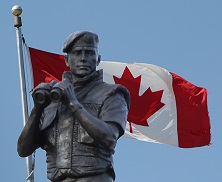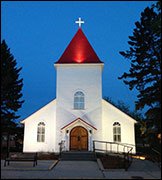True and Fascinating Canadian History
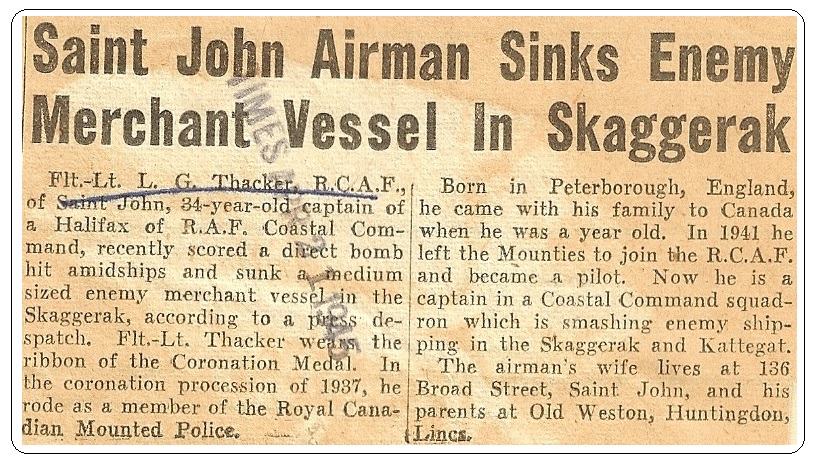
Vet of the Month: July, 2015
Reg.#10895, Corporal Leonard George Thacker. RCAF. WWII.
RCMP Vets. Ottawa, ON
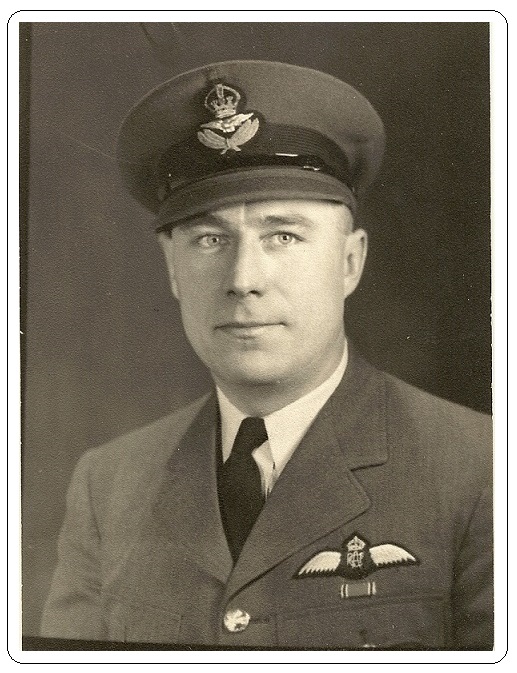
Leonard George Thacker's life could easily be described as far from ordinary. His two careers in uniform spanned both peace and war and he might have lost his life in either occupation. He was born in Peterborough, England and he immigrated to Canada with his parents when he was a child. The Thacker family settled in Saint John, New Brunswick.
Leonard Thacker joined the RCMP in 1930. It was a time in Canada's history that some people had already begun to speculate that war in Europe was not too far away. But at the time, Thacker likely did not realize that he would someday serve Canada in another capacity other than the RCMP.
In his early police career, Thacker served honourably in 'D', 'J' and 'N' Divisions, and in 1937, he was chosen as a member of the Coronation Contingent for King George VI. For the occasion, he was awarded the Coronation Medal. Thacker's police career in the RCMP was proceeding very favourably and he was promoted to Corporal for his efforts.
After returning to Canada from the Coronation in England, Thacker served in the Force for a couple more years. But, Canada's military needed men to fight and Thacker was one among thousands of volunteers to enlist. The Battle of the Atlantic had just begun with its goal to destroy German ships which were being used to transport supplies. From its height in mid 1940, The Battle of the Atlantic continued its campaign against Germany through to the end of 1943. Corporal Thacker was determined to see action and he knew that he could offer his skills and ability and his devotion to duty.
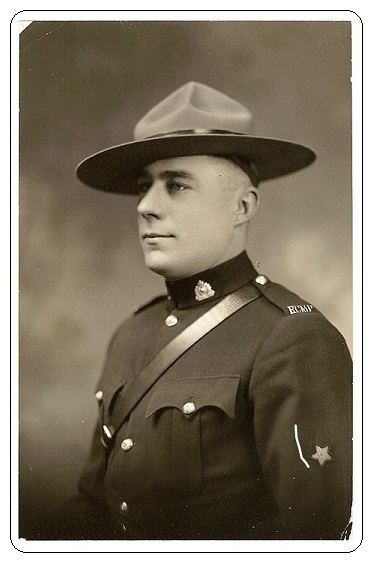
In 1941, Corporal Thacker decided to leave the Force for the RCAF. He entered Pilot's Training at Lakeburn, New Brunswick along with hundreds of men from Australia, the United States and Canada. He received his wings in 1942.
After Pilot's Training, Captain Thacker flew over the Skagerrak -- a strait which runs between the southeast coast of Norway, the southwest coast of Sweden, and the Jutland peninsula of Denmark, connecting the North Sea and the Kattegat sea area, which leads to the Baltic Sea. Captain Thacker was reputed to be an excellent pilot with exceptional skills in the air. Earlier, he had made a conscious decision to leave his family safely in Saint John for a combat role in the air and a job which held out little glory.
Many observers said that fighting in the air and especially over the ocean had far more risks and complications for the pilot than certainly that of being a police officer on a Nova Scotia street. Navigational aids were not sophisticated during WWII and there was every possibility that pilots could loose their way. The work of a pilot was considered the most stressful of all military jobs. Satellite tracking had not yet been invented and there was the risk of running low on fuel. And, time zones created havoc on a pilot's ability to sleep or to clearly focus. Many pilots had lost their life due to poor weather and poor visibility. As well, pilots had to be cognizant that they were responsible also for the lives of other people on board their aircraft. At times, Captain Thacker must surely have weighed all the risks of his air force job. And, he must have thought that his life would have been far more safe if his feet were on the ground in the role of a small town police officer.
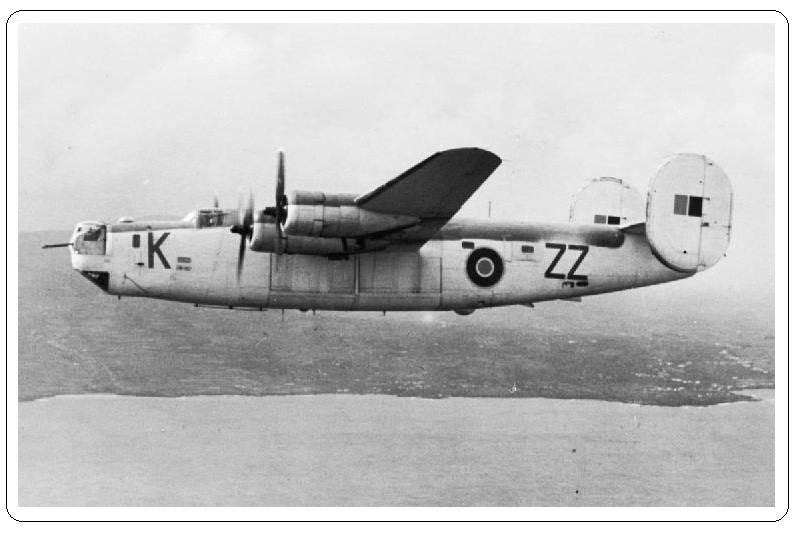
As a member of the Halifax Coastal Command, Captain Thacker had success fighting enemy ships. In one case, newspapers of the day reported that Captain Thacker was directly responsible for a bomb from his aircraft that hit an enemy supply ship and caused it to sink.
After the war, Thacker returned to the RCMP. He went on to serve in Nova Scotia and Prince Edward Island. In 1952, he retired as the Corporal In Charge of Montague Detachment. He and his family then moved to southern Ontario.
In 1966, Corporal Thacker was a Founding Member of the RCMP Veterans' Association in London ON.
All peoples owe an incredible debt of gratitude to the men and women of Canada's Armed Services and especially for stability and peace after WWII. Captain Leonard George Thacker did his job faithfully and he came home safely. But, many pilots did not come home. In Ottawa, the Commonwealth Air Force Memorial commemorates 809 men and women of the Commonwealth air forces who gave their lives in Canada, the United States and neighbouring lands and seas during WWII.
RCMP Corporal Thacker died in 1986. His final resting place, most likely in southern Ontario, has not yet been found. xR. I. P.
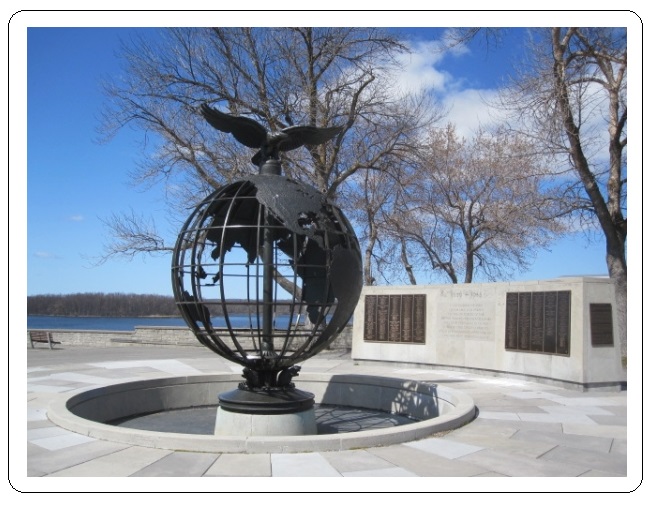
Ottawa, ON
Reporting from Fort Healy,
J. J. Healy
July 23, 2015
I wish to sincerely thank my friend Mr. Hugh Muir of Nova Scotia for sending me the photos of Corporal Thacker as well as the newspaper articles which accompany this Vet of the Month story.
Today, Lakeburn is a part of the City of Dieppe, NB
"In March 1940, the Department of National Defence requested authorization from the Department of Transportation to open a service flying training school under the British Commonwealth Air Training Plan. The school would train war pilots from Commonwealth countries. A hangar was also constructed at the airport for a repair and overhaul base during the war."
Source: http://www.cyqm.ca/en/home/aboutus/history.aspx

